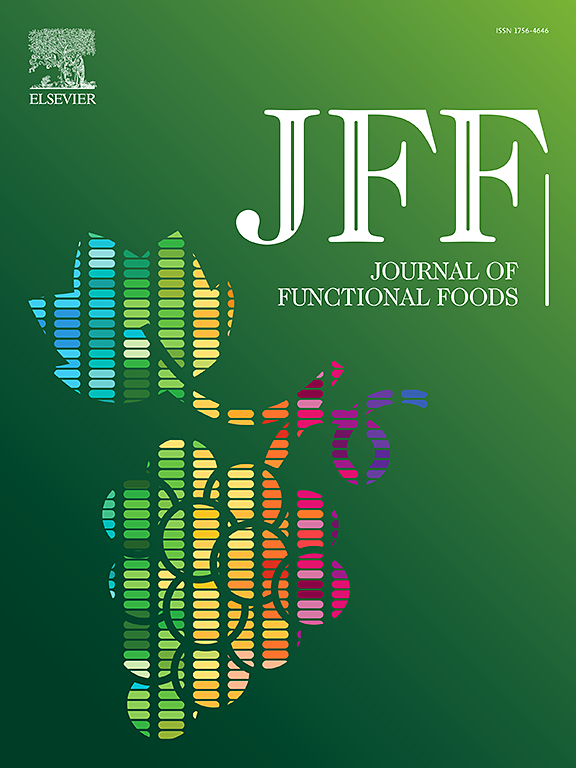HP inulin-MCT dietary fiber improves lipid metabolism and prevents non-alcoholic steatohepatitis in obese mice
Date
2024Author
Tjahjono, Yudy
Foe, Kuncoro
Wilianto, Yufita Ratnasari
Khudrati, Wilson Christianto
Esar, Senny Yesery
Jafet, Nico
Kusuma, I Made Andika Bara
Ade, Lutfi
Novita, Bernadette Dian
Wihadmadyatami, Hevi
Tjan, Lidya Handayani
Nugraha, Jusak
Santoso, Sentot
Wijaya, Hendy
Metadata
Show full item recordAbstract
Introduction: Regular intake of dietary fiber (DF) can counteract the negative impacts of obesity on physical
health and chronic disease risk. DF mitigates obesity by promoting fullness, reducing calories, slowing nutrient
absorption, stabilizing glucose, preventing fat storage, and influencing gut microbiota. High-performance (HP)
inulin, a highly fermentable water-soluble DF, shows promise, but its palatability is limited in powder form.
Combining HP inulin with beneficial triglycerides like Medium Chain Triglycerides (MCT) could overcome this
issue.
Aim of study: This study investigates the effects of HP inulin-MCT on lipid metabolism and immune modulation in
high-fat high-sucrose (HFHS) diet-induced obese mice.
Methods: Obese mice were orally administered with 20 % (w/v) HP inulin-MCT ad-libitum for 30 days. We
measured their peripheral blood lipid profile, including LDL, HDL, and triglycerides. Additionally, the atherogenic coefficient, a parameter for assessing cardiovascular disease risk, was determined by calculating the ratio of
non-HDL-C to HDL-C. Flow cytometry was used to identify splenic regulatory CD4 + and CD8 + T cells (Tregs).
The Non-Alcoholic Steatohepatitis Score was assessed through histological examination.
Results: Significant reduced body mass index, improved lipid profiles, and reduced cardiovascular disease risk
were observed in the obese mice treated with HP inulin-MCT. Moreover, HP inulin-MCT appeared to ameliorate
non-alcoholic steatohepatitis, a liver condition associated with obesity. These health improvements were linked
to immune system modulation, associated with an increase of CD4+ T-regulatory cells after HP inulin-MCT
supplementation.
Conclusion: HP inulin-MCT is a promising and palatable dietary intervention to combat obesity-related noncommunicable diseases, offering the potential for better overall health outcomes.

